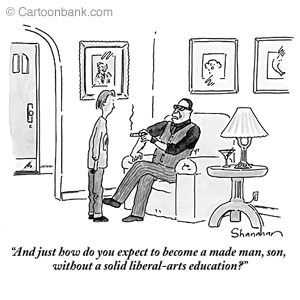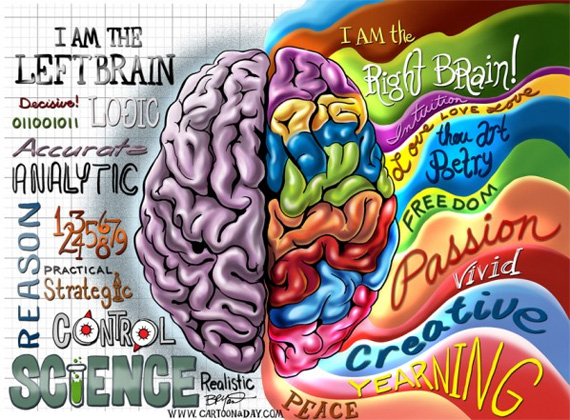
http://socialmouths.com/2014/10/14/10-writing-tips-great-social-media-posts/
Technology has played a very important part in our generation. Online tools such as writing and connecting has given us more opportunities, confidence and comprehensive skills that can be applied to more than just academics, but to life. Paul Taylor explains, “we have all of these incredible gadgets that connect us to the world…and it allows them to place themselves at the center of the universe.” (Murray 11). The digital community accessed through technology allows for easy access to write and share our ideas, a place to not only receive feedback and opportunities but also a place where intellectual rational can develop comprehensively.

https://instapage.com/blog/avoiding-bad-agency-proposals
What Is Digital Writing?
The Internet has changed writing, by becoming a place where anyone can write anything. Sean Michal Morris says, “…digital writing provides no roadmap, at least not yet. Where it goes, how it lives when we’re not watching is something we cannot foretell.” Digital writing is simply anything written online. It can include text, pictures, sounds, videos, and more, the possibilities are endless. Andrea Baer explains in her article, “Keeping up with…Digital Writing in the College Classroom” that digital writing does not only include academic writing like research papers and essays but also the everyday writing such as emails, texts, social media and much more. Since digital writing includes many styles and forms it challenges what we define as ‘writing’.

https://www.weloba.com/article/luis-enrique-talked-about-social-networks-use
Online writing is now more connected than ever before, with more authors than ever before. According to Digital Writing Month the Internet allows us to communicate through text in new ways. The online writing is vastly connected through a web of hyperlinks to every other written piece out there. Writing has never before been more distributed or more creative but also in conversation with other writing. “…digital writing is action. Not that the writing inspires action, or comes out of action, or responds to action. But that the words themselves are active. … Digital words have lives of their own. … And this is because digital writing is communal writing. (Morris). Meaningful networks and communities are possible through digital writing. Communities built through digital writing can have a major role in the writing process. Brian Carroll says in Writing for Digital Media, “Readers become active partners rather than passive consumers” (151). This network allows congregation and communication, where people are now able to collaborate online, they are capable of sharing their ideas and experiences with others more than ever before.
This type of writing has made many reconsider the style of writing that is currently evolving in the digital age. Sharon J. Washington adds that, “The very notion of what it means to write is shifting, and educators are faced with adapting their teaching practices to integrate new technologies while redefining writing and learning for the 21st century.” I would have to say that digital writing is not necessarily replacing analog writing but it is adding a new distinctive quality to what we understand writing is.

http://pbn-hkstrategies.com/en/Insights/Online-Content-Creation–What-s-Hot-and-What-s-Not#.WBvd1mXhj-Y
Digital Writing Is Important
Digital writing has provided an endless amount of resources available to anyone looking for them. The digital community is a network that is collaborated and coordinated, enabling communication and elaboration. Information is ever changing and evolving, constantly updating and refreshing. Richard Lanham on Digital Literacy explains printed or fixed work offers a sense of authority and timelessness – perhaps why we value it. However in digital writing, it can be changed, reformatted, and reorganized. Writing online is different, exiting and new every day. This digital form has made it easy to write all kinds of things for all kinds of people, including the written work of others to enhance your own work, including pictures, videos, and sound. All easily shared with others in this community built network.
Not only is our definition of writing shifting, but also the skills required to interact on this digital platform. It is becoming clear that students must negotiate multiple forms of digital writing to be able to succeed in this fast paced, ever-changing world. Certain skills are needed in the composition of the written work, but also the use of technology itself to create and present your composition multimodality through hyperlinks, videos, pictures sound and more. These skillsets are changing how we learn and how we are taught in the digital writing style.

http://blog.ezinearticles.com/2011/03/formal-vs-informal.html
The juxtaposition of formal academic thesis papers and the every day status update on social media are vastly different from one another. We can all agree that many students would rather sit down and surf the Internet, post status updates and text their friends rather than write a formal research paper for their class that’s due next week. But it is in this informal setting that some of their best work develops. Jeff Grabill includes in his article, “Why Digital Writing Matters in Education” a recent survey by Pew Internet and American Life, where 86 percent of teenagers believe that writing well is important to success in life. But they don’t see most of the writing that they do in their lives as “real” writing. Yet, ironically, it is the writing in which they find the most pleasure, that they do most eagerly and, arguably, that they do most successfully. It is this digital writing that helps students improve critical thinking skills and become better learners comprehensively across all subject matter. “Today’s young people are using a range of digital tools to compose and create in new and exciting ways,” said Sharon J. Washington, executive director of the National Writing Project. Writing itself has not changed, but perhaps our definition of writing has in the new digital age of writing online.
The art of writing will never go away, but it will continue to evolve over time. Grabill continues by saying that writing is a key language skill that also supports learning in other subjects. To go further, writing is a skill needed to effectively communicate with others, not only through the words themselves, but comprehensively. Jen Rajchel explains that, “These are the same skills that students learn in seminar style courses offered by liberal arts colleges: reading across disciplines, developing expertise, and delving into discussions. Students learn to challenge each other, and more importantly, themselves.” Not everyone has this opportunity to study across many subjects, but this develops full-minded thinkers and well rounded individuals who are even better prepared for what has to come.

Cartoonbank.com
Why Does It Matter?
For me digital writing is important to learn about and become proficient in – since the whole world seems to be quickly advancing through many forms of technology and fads of writing online. Most times I find it difficult to keep up with the latest gadgets or social media like twitter. But what I do find the most reliable is my computer and the information I find on the web. I can’t imagine going through school without a computer. How did anyone get anything done!? Its so convenient when I’m sitting down to do my homework to simply Google something I don’t understand and read an article or watch a video to help me learn new material, and especially for writing papers and reports for classes. Everything I need is online somewhere, I just have to find it.
When I tell people that I am a Biology major and an Art minor they kind of look at me funny. They don’t see how these two subjects go together, one is “left brain thinking” and the other is “right brain thinking”. But I believe they go hand in hand with one another. There is a lot of information, processes, and systems in the science of biology and it may be hard for people to understand. However being able to present the material through an artistic, visual way – more people may be able to understand the material even better. This is a perfect example of what a liberal arts education can give you, the ability to draw connections between two seemingly opposite ideas and make something out of them.

http://www.brainygirls.org/2013/02/art-and-science-intersect-how.html
The same holds true for digital writing. You not only have to be able to write well to effectively convey your thoughts and ideas with others but you need to present them in a way others will want to engage with. Maybe it is through videos, pictures, sounds, or any combinations of these. Being able to put all of this together to create something that your audience will want to read, learn from, share with their friends, add an idea of their own and even more, is what writing online is about. It’s creating a network community where you are free to write and share your thoughts and ideas, receive feedback, gain opportunities and more. Digital writing develops full-minded thinkers and well-rounded individuals.
Works Cited
Baer, Andrea. “Keeping Up With… Digital Writing in the College Classroom.” http://www.ala.org/acrl/publications/keeping_up_with/digital_writing. Web. 27 Oct. 2016.
Carroll, Brian. “ Writing for Digital Media.” http://blogs.dickinson.edu/wrpg211/files/2016/08/Carroll_Blogito-Ergo-Sum.pdf
Grabill, Jeff. “Why Digital Writing Matters in Education.” https://www.edutopia.org/blog/why-digital-writing-matters-jeff-grabill. 11 June. 2012. Web. 27 Oct. 2016.
Lanham, Richard. “Digital Literacy.” http://www2.idehist.uu.se/distans/ilmh/Ren/lanham-digital-lit.htm. Scientific American. Sept 1995. Web. 27 Oct. 2016.
Morris, Sean Michael. “Digital Writing Uprising: Third Order Thinking in the Digital Humanities.” http://www.digitalpedagogylab.com/hybridped/digital-writing-uprising-third-order-thinking-in-the-digital-humanities/. 8 Oct 2012. Web. 27 Oct. 2016.
Murray, Sarah. “Transition: Technology Puts Power In The Hands Of Many.” http://blogs.dickinson.edu/wrpg211/files/2016/08/Murray_Technology-Puts-Power-in-the-Hands-of-Many.pdf.
National Writing Project. http://www.nwp.org/cs/public/print/resource/3310. 25 Oct. 2010. Web. 27 Oct. 2016.
Rajchel, Jen. “Consider The Audience.” http://epress.trincoll.edu/webwriting/chapter/rajchel/. Web. 27 Oct. 2016.
